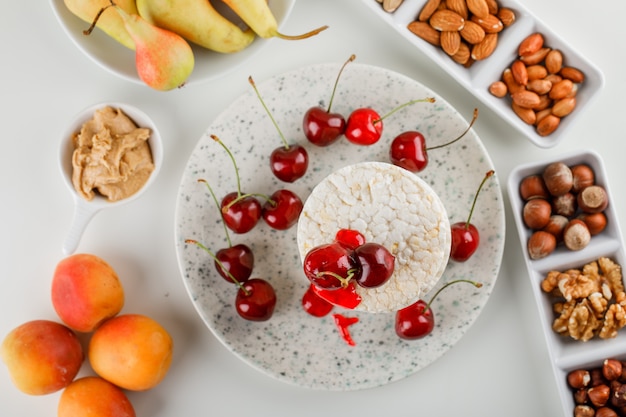
Got eczema? Certain foods can help reduce the inflammation that causes your skin to become dry, itchy, and flaky, according to nutritionist Olga Hamilton. Eczema, often a long-term inflammatory skin condition, affects one in five children and one in 12 adults in the UK.
While your diet might not directly cause eczema, it can trigger flare-ups. Research shows that what you eat can worsen the condition within minutes or hours of consuming certain foods. Hamilton shares five dietary tips to help manage eczema:
1. Probiotics: These live microorganisms support your immune system and curb harmful bacteria growth in your gut. Common probiotics like Lactobacillus and Bifidobacterium have been linked to a reduced risk of eczema. You can find them in yoghurt, water-based kefir, raw cheese, fermented soy products, kombucha, sauerkraut, and kimchi. Incorporate small amounts of these foods into your daily diet.
2. Prebiotics: These are non-digestible carbohydrates that feed the good bacteria in your intestine, helping them thrive. Sources include beans, legumes, Jerusalem artichokes, leeks, shallots, chicory, asparagus, mushrooms, garlic, and onions. Aim for three portions of these vegetables each day (80g for veggies, 120g for cooked legumes).
3. Cruciferous Vegetables: Poor liver function can contribute to eczema by failing to process toxins, which are then expelled through the skin. Cruciferous vegetables, like cabbage, kale, broccoli, and Brussels sprouts, help your liver detoxify by producing enzymes that balance your digestive system and reduce inflammation. Include two portions daily, in any cooked or raw form.
4. Turmeric: This spice is known for its anti-inflammatory and antioxidant properties. Curcumin, the active ingredient in turmeric, supports immune function and can alleviate eczema symptoms. Turmeric can be added to various dishes to boost its intake.
5. Vitamin D: Essential for immune health, vitamin D can be produced by the body through sun exposure and found in foods like wild oily fish, vitamin D-enriched mushrooms, and grass-fed butter. Low levels of vitamin D are common in people with eczema and can worsen inflammation. Aiming for adequate vitamin D intake is crucial to manage the condition.
Incorporating these dietary strategies may help manage eczema by reducing inflammation and supporting overall skin health.

